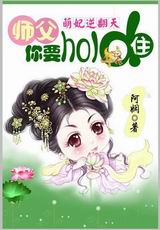aphorisms-第2部分
按键盘上方向键 ← 或 → 可快速上下翻页,按键盘上的 Enter 键可回到本书目录页,按键盘上方向键 ↑ 可回到本页顶部!
————未阅读完?加入书签已便下次继续阅读!
20。 Those who have watery discharges from their bowels when young
have dry when they are old; and those who have dry discharges when
they are young will have watery when they are old。
21。 Drinking strong wine cures hunger。
22。 Diseases which arise from repletion are cured by depletion;
and those that arise from depletion are cured by repletion; and in
general; diseases are cured by their contraries。
23。 Acute disease come to a crisis in fourteen days。
24。 The fourth day is indicative of the seventh; the eighth is the
commencement of the second week; and hence; the eleventh being the
fourth of the second week; is also indicative; and again; the
seventeenth is indicative; as being the fourth from the fourteenth;
and the seventh from the eleventh。
25。 The summer quartans are; for the most part; of short duration;
but the autumnal are protracted; especially those occurring near the
approach of winter。
26。 It is better that a fever succeed to a convulsion; than a
convulsion to a fever。
27。 We should not trust ameliorations in diseases when they are
not regular; nor be much afraid of bad symptoms which occur in an
irregular form; for such are commonly inconstant; and do not usually
continue; nor have any duration。
28。 In fevers which are not altogether slight; it is a bad symptom
for the body to remain without any diminution of bulk; or to be wasted
beyond measure; for the one state indicates a protracted disease;
and the other weakness of body。
29。 If it appear that evacuations are required; they should be
made at the commencement of diseases; at the acme it is better to be
quiet。
30。 Toward the commencement and end of diseases all the symptoms are
weaker; and toward the acme they are stronger。
31。 When a person who is recovering from a disease has a good
appetite; but his body does not improve in condition; it is a bad
symptom。
32。 For the most part; all persons in ill health; who have a good
appetite at the commencement; but do not improve; have a bad
appetite again toward the end; whereas; those who have a very bad
appetite at the commencement; and afterward acquire a good appetite;
get better off。
33。 In every disease it is a good sign when the patient's
intellect is sound; and he is disposed to take whatever food is
offered to him; but the contrary is bad。
34。 In diseases; there is less danger when the disease is one to
which the patient's constitution; habit; age; and the season are
allied; than when it is one to which they are not allied。
35。 In all diseases it is better that the umbilical and
hypogastric regions preserve their fullness; and it is a bad sign when
they are very slender and emaciated; in the latter case it is
dangerous to administer purgatives。
36。 Persons in good health quickly lose their strength by taking
purgative medicines; or using bad food。
37。 Purgative medicines agree ill with persons in good health。
38。 An article of food or drink which is slightly worse; but more
palatable; is to be preferred to such as are better but less
palatable。
39。 Old have fewer complaints than young; but those chronic diseases
which do befall them generally never leave them。
40。 Catarrhs and coryza in very old people are not concocted。
41。 Persons who have had frequent and severe attacks of swooning;
without any manifest cause; die suddenly。
42。 It is impossible to remove a strong attack of apoplexy; and
not easy to remove a weak attack。
43。 Of persons who have been suspended by the neck; and are in a
state of insensibility; but not quite dead; those do not recover who
have foam at the mouth。
44。 Persons who are naturally very fat are apt to die earlier than
those who are slender。
45。 Epilepsy in young persons is most frequently removed by
changes of air; of country; and of modes of life。
46。 Of two pains occurring together; not in the same part of the
body; the stronger weakens the other。
47。 Pains and fevers occur rather at the formation of pus than
when it is already formed。
48。 In every movement of the body; whenever one begins to endure
pain; it will be relieved by rest。
49。 Those who are accustomed to endure habitual labors; although
they be weak or old; bear them better than strong and young persons
who have not been so accustomed。
50。 Those things which one has been accustomed to for a long time;
although worse than things which one is not accustomed to; usually
give less disturbance; but a change must sometimes be made to things
one is not accustomed to。
51。 To evacuate; fill up; heat; cool; or otherwise; move the body in
any way much and suddenly; is dangerous; and whatever is excessive
is inimical to nature; but whatever is done by little and little is
safe; more especially when a transition is made from one thing to
another。
52。 When doing everything according to indications; although
things may not turn out agreeably to indication; we should not
change to another while the original appearances remain。
53。 Those persons who have watery discharges from the bowels when
they are young; come off better than those who have dry; but in old
age they come off worse; for the bowels in aged persons are usually
dried up。
54。 Largeness of person in youth is noble and not unbecoming; but in
old age it is inconvenient; and worse than a smaller structure。
SECTION III。
1。 The changes of the season mostly engender diseases; and in the
seasons great changes either of heat or of cold; and the rest
agreeably to the same rule。
2。 Of natures (temperaments?); some are well… or ill…adapted for
summer; and some for winter。
3。 Of diseases and ages; certain of them are well… or ill…adapted to
different seasons; places; and kinds of diet。
4。 In the seasons; when during the same day there is at one time
heat and at another time cold; the diseases of autumn may be expected。
5。 South winds induce dullness of hearing; dimness of visions;
heaviness of the head; torpor; and languor; when these prevail; such
symptoms occur in diseases。 But if the north wind prevail; coughs;
affections of the throat; hardness of the bowels; dysuria attended
with rigors; and pains of the sides and breast occur。 When this wind
prevails; all such symptoms may be expected in diseases。
6。 When summer is like spring; much sweating may be expected in
fevers。
7。 Acute diseases occur in droughts; and if the summer be
particularly such; according to the constitution which it has given to
the year; for the most part such diseases maybe expected。
8。 In seasons which are regular; and furnish the productions of
the season at the seasonable time; the diseases are regular; and
come readily to a crisis; but in inconstant seasons; the diseases
are irregular; and come to a crisis with difficulty。
9。 In autumn; diseases are most acute; and most mortal; on the
whole。 The spring is most healthy; and least mortal。
10。 Autumn is a bad season for persons in consumption。
11。 With regard to the seasons; if the winter be of a dry and
northerly character; and the spring rainy and southerly; in summer
there will necessarily be acute fevers; ophthalmies; and
dysenteries; especially in women; and in men of a humid temperament。
12。 If the but the spring dry and northerly; women whose term of
delivery should be in spring; have abortions from any slight cause;
and those who reach their full time; bring forth children who are
feeble; and diseased; so that they either die presently; or; if they
live; are puny and unhealthy。 Other people are subject to
dysenteries and ophthalmies; and old men to catarrhs; which quickly
cut them off。
13。 If the summer be dry and northerly and the autumn rainy and
southerly; headaches occur in winter; with coughs; hoarsenesses;
coryzae; and in some cases consumptions。
14。 But if the autumn be northerly and dry; it agrees well with
persons of a humid temperament; and with women; but others will be
subject to dry ophthalmies; acute fevers; coryzae; and in some cases
melancholy。
15。 Of the constitutions of the year; the dry; upon the whole; are
more healthy than the rainy; and attended with less mortality。
16。 The diseases which occur most frequently in rainy seasons are;
protracted fevers; fluxes of the bowels; mortifications; epilepsies;
apoplexies; and quinsies; and in dry; consumptive diseases;
ophthalmies; arthritic diseases; stranguries; and dysenteries。
17。 With regard to the states of the weather which continue but
for a day; that which is northerly; braces the body; giving it tone;
agility; and color; improves the sense of hearing; dries up the
bowels; pinches the eyes; and aggravates any previous pain which may
have been seated in the chest。 But the southerly relaxes the body; and
renders it humid; brings on dullness of hearing; heaviness of the
head; and vertigo; impairs the movements of the eyes and the whole
![[psycho-pass]不完全刑事手册 作者:月_殇封面](http://www.nstxt.com/cover/noimg.jpg)

